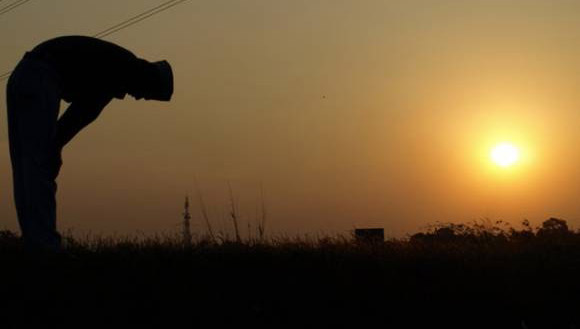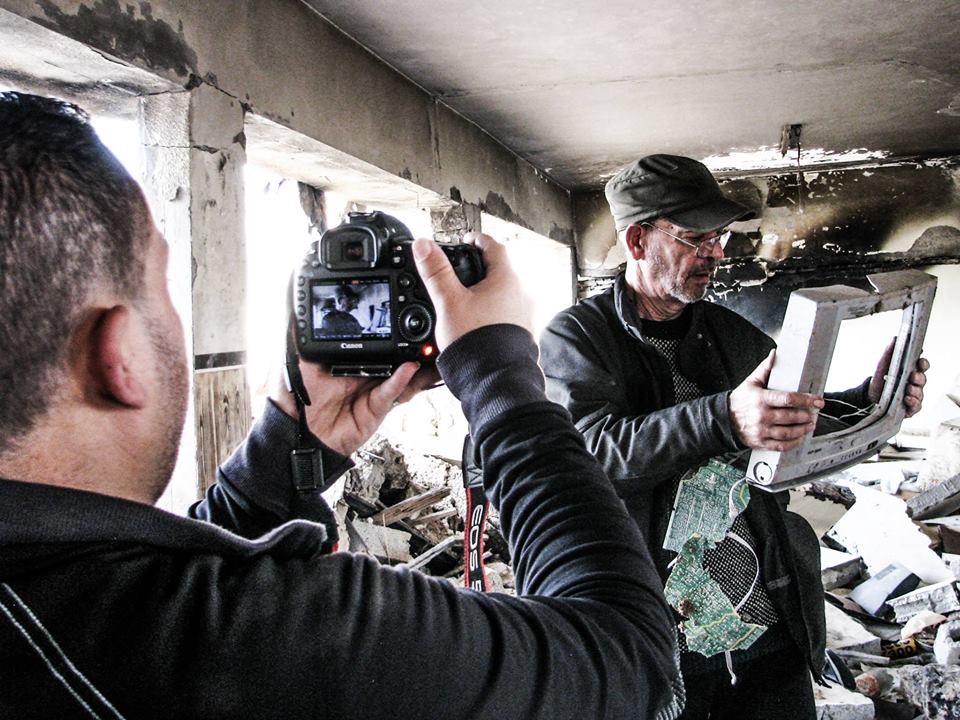The Urban Police of Cairo
By Geoffrey Cook, TMO
Alameda–February 20th–Back in California on an island again (last week it was Key West in Florida), but, unlike the pastoral Florida Keys, Alameda is a rather large land mass off the working city of Oakland. Most of the islands in San Francisco Bay were granted to the (U.S.) Federal government in the Nineteenth Century. A third of Alameda had been a major naval air base, but with the end of the Cold War, the military has moved on except for the Coast Guard and military pensioners. Like so much of America, it is a dramatically shifting demographic population – even a Masjid whose policy is not to be inclusive within the faith organizations of the city even though the Christian Churches and one Jewish Synagogue have asked them to be part of their inter-denominational Council much unlike the majority of immigrant-based Mosques within the S.F. Bay Area.
Your writer brings up his environment of writing to compare with the environ of his writings –the upheavals (within the mostly Arab world, which now has spread to Muslims across to the Horn of Africa, Djibouti, across the Gulf of Aden) and over two hundred and thirty-three souls as of the 21st of the month of composition in Benghazi with Tripoli in Libya as their troops attack protestors today.
On that day civil war was near. Reports that Libyan air force planes have dropped bombs on protestors and two other pilots requested asylum in Malta based on the fact that they had disobeyed orders to bomb their fellow citizens. Predictions of civil war bound over the international airways as their diplomats in the field dramatically resign. Again, in the capital of the small oil rich archipelago of Bahrain, their capital Manamas, in the Western Persian Gulf protests has erupted. Yemen, the poorest of Arab nations, is in open rebellion, too; so, is the Farsi Shia nation, who simultaneously has sent two naval vessels into the Mediterranean while protests in support of Egypt are still boiling on Tehran streets and where the most conservative legislators there are calling for the “heads of the dissidents!†As Jordan and Syria teeter with open rebellion. Even Algeria, Morocco and non-Arab Turkey are coming to terms with their own reform agendas to stave off internal governmental regime collapse this past week. As Tunisia and Egypt are settling in to, hopefully, create more egalitarian States. (The largest unknown, as your commentator contended a fortnight previously is Israel, and with the United States’ veto on their Settlements in the Occupied Territories within the United Nations’ Security Council [the eighteenth], which is almost universally condemned internationally, has enabled Tel Aviv into violent reaction against their neighbors) as the New York benchmark for oil has risen to $108 the barrel closing a week ago Monday (U.S.A. Monday).
About the time of the beginning reporter’s tenure here at this paper, he listened to a Paul Amar, a legal researcher, but did not write up the comments because of the comparative nature of his research – both Iraq and Brazil were the counterweights to the republic on the Nile– but, due to the changes happening over the Middle East, this material becomes relevant (incidentally, Baghdadi citizens are presently expressing municipal unrest during the last part of the previous week from the date of writing of this study, Iraqi Civil Society (not Al-Qaida), because of the real serious systemic failings that the U.S. and allies imposed upon Mesopotamia in the name of “democracy. This is a very real lesson for those governments in the West who would attempt to inflict upon the possible enlarging Arabic democracies the West – either Westminster or Jeffersonian’s — own image of what specifically democratic organization is.
He believes policing and politics over the Middle East had become transnational during the pre-Mubarak period. It showed a common cross-national influenced policy of law enforcement. (It has been established that in Upper Egypt that policemen enforced State repression rather than the people-identified Army.)
The transnational aspects of policing are found more in the urbanized area within the Middle East. The police are poorly paid, but they would brutally enforce the prerogatives of the State for the privileges of unimpeded racketeering; and, thus, the majority of individual wealth of a particular “cop†was derived from his corruption. Amar claimed that this type of swindling is common within developing nations with a considerable Middle Class.
At the same time, the police in these countries seem to be immune from other types of Globalism. These autonomous “Bobbies†exploit new types of oppression.
From 1998-2004, after the infamous 1997 terrorist massacre of foreign tourists, the restructuring of the police force failed. Fortunately, also, they did not succeed to suppress the Islamists, allowing the Muslim Brotherhood to become a legitimate democratic party. Unfortunately, some unrelated incidents led to more new social control.
They projected a racist reaction to the “Mulatto,†or, in the Nile’s terminology, internal immigrants from Lower Egypt as hustlers and thugs (much like the Roma in Europe). Therefore, the greatly vilified lesser Egyptian fulfilled a function to the Middle Classes that was not real, but rather was produced through a vicious manipulation of State-generated mythology. Their ideology of fear-mongering presented the “space†for the administration’s enforcers.
The military and, therefore the paramilitary (or police) in these transnational confederacy (in Amar’s comparative research compared the policing in Egypt to Iraq and Brazil) became privatized – much like the clandestine mercenary contractors to the American forces in their Middle East “Colonial†Wars (which, of course, included Iraq).
The military and paramilitary in the contemporary Middle East does not target the new Neo-Liberal (Capitalist) classes. The arm of State has become part of the transnational “class,†and, further, this new Transnationalism has become the new Nationalism. Though, at the same, enforcement targets the marginalized of society. (Victimization of the victim re-enforces the sense of security for the bourgeois. One of the hardest reforms for the burgers to accept will be this disposal of the subjugation of the lower classes. Success or failure of this Egyptian “revolution†will highly depend upon this.)
The Liberal (i.e., Neo-Ricardian) impulse within almost all developed (and developing republics and monarchies – including those within the Islamic world) is brewing. Paul Amar opines that the Muslim Brotherhood has been co-opted. Your writer disagrees. The Muslim Observer’s correspondent, as he has deemed before on these pages, believes the Brotherhood is a sincerely democratic, although slightly to the right of Center, political party, which wishes to put elements of their religion into their ideology much, curiously, like the European Christian Democrats.
Amar concludes his comments with: What will happen when the military withdraws its support from Neo-Liberalism? (Well, we all shall shortly see soon. So far the generals have voiced and reinforced their commitments to the agreements and political principles of the ancient regime on the Nile. The Generals have moved to protect their own financial interests, too. This does not forebode well for change or significant democratization in North Africa. Yet, your analyst believes, if reform is begun to end the brutality and corruption of the police, there will hopefully be for meaningful change.)
Note: Libya is in open revolt today (February 22nd, Washington’s Birthday, the founder of the American Republic) as the Observer goes to press. The civil protestors have overrun the second largest city within Libya, Benghazi, and they are in control. The BBC (the British Broadcasting Company) has reported that the country is near civil. The second largest city, Benghazi, has been overrun by protestors, and they are in control. African mercenaries from outside of the country have been brought in to counter the mixed loyalties of the the Libyan armed forces. Colonel Gaddafi has asked his supporters to come out into the streets to battle the insurgents. It has become a struggle between the Revolutionary generation (the Colonel led the coup against the Colonal Italian appointed King) forty years ago. Gaddafi has sworn to stay in Libya and die a martyr if need be.
Gaddafi’s “Vice†President resigns, too. In his speech of the 22nd, Gaddafi described the demonstrators as “dogs.†A Libyan human rights activist declared that Gaddafi’s son’s speech of Sunday the 20th was the first declaration of war, and the speech by the Colonel himself was the second of such declarations. From Switzerland, the activist claims Gaddafi has lost most of the larger tribes — over a third of the Libyan population. Libya’s Permanent Representation to the United Nations from New York City states, What you are seeing on the ground…is [are] crimes against humanity.†Further the U.N.’s Under Secretary General declares, “It is deteriorating, and it will get worse.†In a United Nations’ dispatch: “A more robust response is…needed…that means war. Gaddafi has become an embarrassment to the worldwide Leftist governments, too. While the Security Council haggles over the wording of its position.
The U.S. has little leverage there — they have an Embassy in Tripoli with no Ambassador. America’s intelligence there is nil. The Chair the Senate Foreign Relations Committee (Senator Kerry) is advocating re-instating the boycott (which would hurt the protestors the most). The District of Columbia is depending upon the answers and action from the U.N. Further, we have been in adversarial relationship for most of the past four decades.
13-9













2011
897 views
views
0
comments